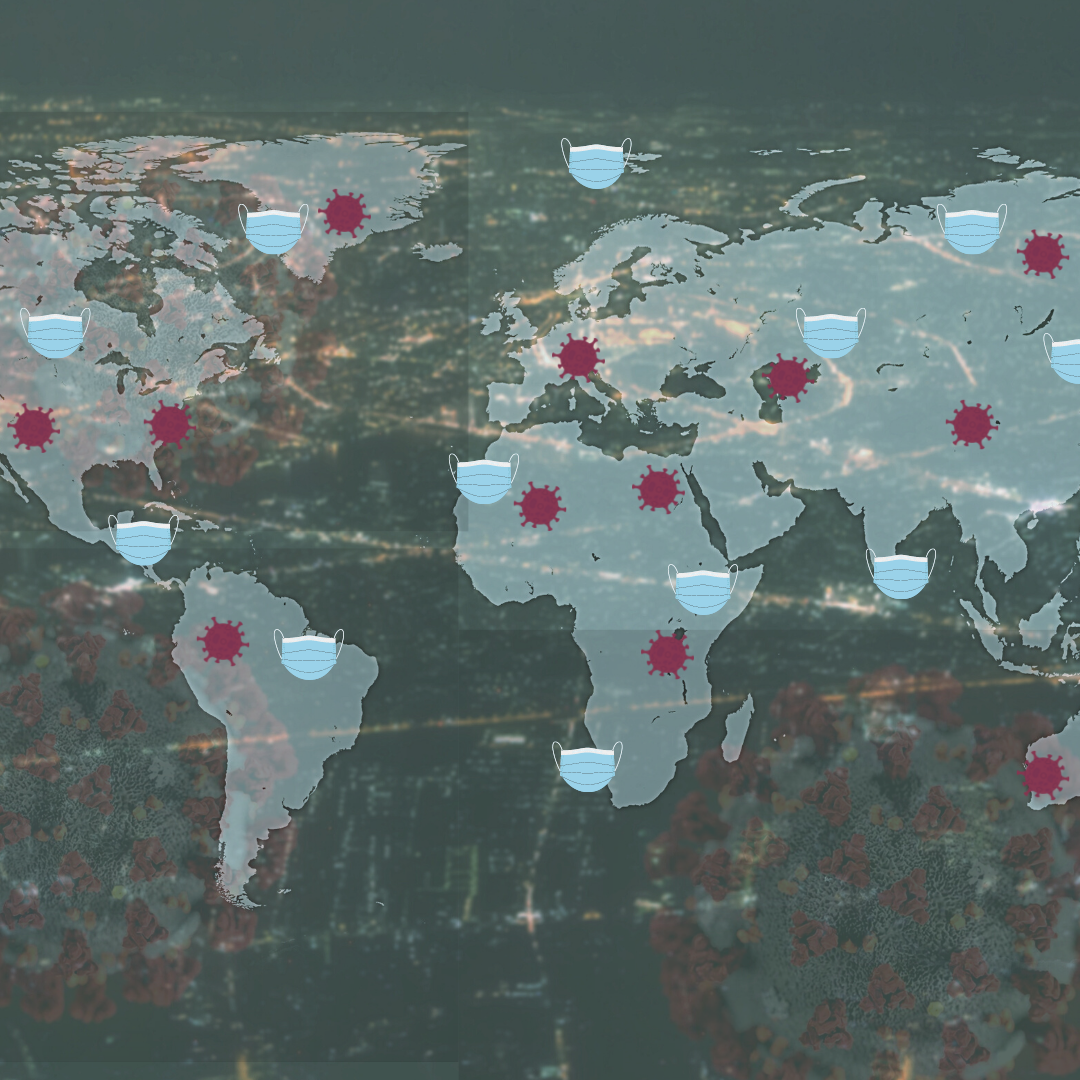
By Hannah Ornas
Edited by Samyukta Singh
______________________________________________________________________________
Since early 2020, the world has been united in its fight against COVID-19. Today, the death toll from the virus stands at over 6 million,1 and global efforts are still underway to curb its spread and reduce strain on overburdened healthcare systems. The infectious nature of the virus and its resulting economic disruption has reshaped many discussions around global health. While significant legislation has focused on bolstering global health security2—such as improving endemic and pandemic disease detection—House Resolution 1373, introduced to the United States (U.S.) Congress in September 2022, proposes an ambitious new strategy centered on strengthening global health systems and achieving universal care. Introduced by Congresswoman Jan Schakowsky (IL), Congressman Raul Ruiz (CA), and Congresswoman Barbara Lee (CA), the resolution proposes a substantial increase in U.S. global health spending—growing the annual budget ten times its current size to $125 billion per year.3
Creating an “Extraordinary Vision for Realizing Global Health Equity”
House Resolution 1373, also known as the Paul Farmer Memorial Resolution, charts a new global health strategy for the U.S. Named in honor of late medical anthropologist and infectious disease physician Paul Farmer, the resolution is dedicated to dismantling global systemic health inequities. The legislative intent aims to address vast disparities in access and quality of health care worldwide through the creation of “a 21st-century global health solidarity strategy.”4 Lawmakers propose a $100+ billion annual increase in U.S. global health spending.5 Co-sponsors of the resolution argue this budget increase will address the millions of preventable deaths from non-communicable and infectious diseases experienced disproportionally by the global poor. They advocate for the U.S. to contribute roughly 30 percent of the financing gap needed to achieve “essential universal coverage” for low- and lower-middle-income countries by expanding access to critical services such as preventive treatment and rehabilitation and palliative care.6 Although the proposed budget increase appears large in absolute dollars, the aid needed to achieve basic universal coverage is small relative to U.S. GDP, at only 1.6 percent of 2021 values.7 The budget increase would also enable the U.S. to join a select group of countries that contribute 0.7 percent of Gross National Income (GNI) toward official development assistance—a United Nations’ target agreed upon by multiple wealthy countries, but achieved by few.8 Despite its position as the leader in humanitarian aid contributions, the U.S. currently ranks below most of its wealthy peers—contributing 0.2 percent of its GNI to development assistance.9
Alongside the tenfold budget increase, the proposed strategy acknowledges the intricate linkages between healthcare and economic prosperity, advocating for initiatives that reorient power dynamics within the global financial system. Resolution sponsors have called for reparations from countries that have benefited from brutal colonial regimes. Such an approach touches upon the complex moral debate surrounding foreign aid: should aid be a form of social justice or solely charitable assistance? While the outcomes of either strategy might be similar, the difference between aid and reparations lies within intent. It also elicits debate as to whether the two approaches—reparations vs. charitable assistance—should be conflated at all. Regardless of one’s stance, it is evident that the health of many colonized countries, particularly within the global south, have suffered under colonialism and continue to suffer under global economic power imbalances.10 House Resolution 1373 takes aim at remedying this.
Introducing a New Global Health Strategy Amidst Foreign Aid Debate
The resolution comes at a particularly complex time. The pandemic has amplified existing systemic health inequities, and the U.S. foreign aid budget remains a fiercely contested area among policymakers.11 The proposed budget increase will likely draw the attention of those who question the effectiveness of international aid and advocate for investments in pressing domestic issues.12 It may also face opposition given the growing number of global challenges vying for lawmakers’ attention.13
The proposed budget increase may not, however, be such a polarizing topic for everyday Americans. Polls show that while Americans typically overestimate federal spending on foreign aid, when asked what percent foreign aid should comprise of the federal budget, respondents suggest roughly ten percent.14 Today, U.S. budget allocation for foreign is closer to one percent.15
A Framework for Discussion and Debate
Introduced to Congress as a ‘Simple Resolution,’ House Resolution 1373 will not become binding law, but will rather serve as a framework that lawmakers can leverage for greater discussion around U.S. global health strategies.16 Schakowsky and her co-sponsors are hopeful the resolution will ignite new debate among policymakers, governments, and public health professionals and that the resolution will “serve as a North Star that will guide the movement for global health equity for years to come”.17
References:
1. “WHO Coronavirus (COVID-19) Dashboard.” Accessed October 10, 2022. https://covid19.who.int.
2. 2022. “U.S. Global Health Legislation Tracker.” KFF. Kaiser Family Foundation, August 26, 2022. https://www.kff.org/coronavirus-covid-19/fact-sheet/u-s-global-health-legislation-tracker/.
3. KFF. “Breaking Down the U.S. Global Health Budget by Program Area,” September 15, 2022. https://www.kff.org/global-health-policy/fact-sheet/breaking-down-the-u-s-global-health-budget-by-program-area/.
4. Jan, Schakowsky. Dr. Paul Farmer Memorial Resolution, Pub. L. No. H. RES. 1373 (2022). https://www.congress.gov/bill/117th-congress/house-resolution/1373/text.
5. Jan, Schakowsky, Dr. Paul Farmer Memorial Resolution.
6. “Universal Health Coverage.” World Health Organization. Accessed November 12, 2022. https://www.who.int/health-topics/universal-health-coverage.
7. Jan, Schakowsky, Dr. Paul Farmer Memorial Resolution.
8. Ingram, George. “What Every American Should Know about US Foreign Aid.” Brookings (blog), October 2, 2019. https://www.brookings.edu/opinions/what-every-american-should-know-about-u-s-foreign-aid/
9. Ingram, “What Every American Should Know about US Foreign Aid.”
10. Forster, Timon, Alexander E. Kentikelenis, Thomas H. Stubbs, and Lawrence P. King. “Globalization and Health Equity: The Impact of Structural Adjustment Programs on Developing Countries.” Social Science & Medicine 267 (December 2020). https://doi.org/10.1016/j.socscimed.2019.112496.
11. Kull, Steven. “American Public Support for Foreign Aid in the Age of Trump.” Brookings (blog), July 31, 2017. https://www.brookings.edu/research/american-public-support-for-foreign-aid-in-the-age-of-trump/.
12. London School of Economics and Political Science. “How International Aid Can Do More Harm Than Good: The Case of Lebanon.” London School of Economics and Political Science. Accessed November 12, 2022. https://www.lse.ac.uk/ideas/publications/updates/international-aid-lebanon.aspx.
13. Timperley, Jocelyn. “The Broken $100-Billion Promise of Climate Finance — and How to Fix It.” Nature 598, no. 7881 (October 20, 2021): 400–402. https://doi.org/10.1038/d41586-021-02846-3.
14. Ingram, “What Every American Should Know about US Foreign Aid.”
15. Ingram, “What Every American Should Know about US Foreign Aid.”
16. Glossary of Legislative Terms.” Congress.Gov, n.d. https://www.congress.gov/help/legislative-glossary#glossary_simpleresolution.
17. Jan, Schakowsky, Dr. Paul Farmer Memorial Resolution






